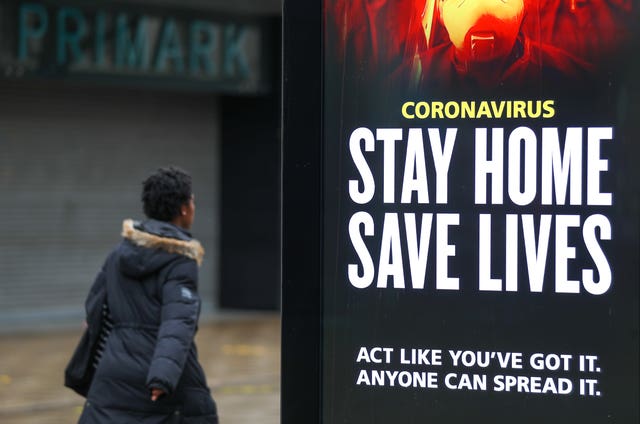
The British public have been praised for adapting to life in a pandemic, showing “heroic” levels of compliance with strict lockdown measures over the last few months.
Professor Stephen Reicher, a member of the Scientific Pandemic Insights Group on Behaviours (SPI-B) which advises the Government, said that “covidiots” breaking rules and partying have very much been in the minority.
He said he has been struck by the “ongoing resilience” of the public and described stories of people’s everyday adherence to the rules as “moving” and “inspiring”.

Prof Reicher, from the School of Psychology and Neuroscience at the University of St Andrews, has spent years researching people’s behaviour in crises, emergencies and disasters.
He told the PA news agency: “There is a widespread notion that in crises people effectively crack, they panic, they behave in irrational ways, they behave in negative ways.
“You wouldn’t have a decent Hollywood disaster film without people rushing to the exits and blocking them up and turning a crisis into a tragedy.
“But actually when you look at disasters and crises, that’s not what you find.”
He said that people tend to stay calm and look after each other, adding: “Often if people die it’s because they’ve stayed behind to look after others, so actually the general finding is one of people coming together.
“The fact that they have a common experience, common dangers, common fears creates a sense of ‘us’, of shared identity that leads people to support each other.

“And actually, that’s what happened in this pandemic. And while many of the stories have been about people breaking the rules, have been about covidiots, have been about parties, they are very much the exception rather than the rule.
“And time and again, through the first lockdown, second lockdown and third lockdown, what we’ve seen are remarkable levels of compliance.
“It might be dull, it might be mundane, but quite heroic compliance.”
He said research from the first lockdown showed that more than 90% of people were complying and about half of those were suffering quite badly but they still did it because they believed it was the right thing to do.
Prof Reicher said: “So there was this major disconnect, I think, between the reality, which is that the public have been quite heroic and the public have in many ways been the strong link in the pandemic, and the perception and the constant concern that it will be the public who will let you down, and the public will be the weak link.”
Dr Daisy Fancourt, from the UCL Institute of Epidemiology and Health Care, is lead author on a Covid-19 social study which has found that compliance has been much higher than people were predicting a year ago when there was talk of “behavioural fatigue”.

She told PA: “Humans have actually been much better at responding as a collective and doing what’s needed for the greatest good within society.
“So I think there’s been a real message coming through here about how humans actually are perhaps not as selfish as people thought but in general are really happy to play their part, and to help in times of emergencies and crisis.
“And we’ve seen that as well with the outpourings of mutual support, mutual aid, social cohesion and volunteering that we’ve seen across this pandemic as well, and selfless gestures that we’ve heard so much about.”
Dr Fancourt added: “It’s been awe-inspiring to see how well humans respond in emergencies collectively, whether that’s across compliance, whether it’s across mutual support towards one another, whether it’s across their abilities to adapt so quickly to such different circumstances.”


Comments: Our rules
We want our comments to be a lively and valuable part of our community - a place where readers can debate and engage with the most important local issues. The ability to comment on our stories is a privilege, not a right, however, and that privilege may be withdrawn if it is abused or misused.
Please report any comments that break our rules.
Read the rules here